Populist challenge brings Europe to crossroads
- Published
National Front leader Marine Le Pen on why the EU must change
My shiny red rental Fiat 500 wound its way up and round the narrow, olive-tree lined lanes like a ladybird humming through the Tuscan countryside.
With the windows down, I sang along to cheesy Mediterranean songs on the radio, watching the scenery flash by.
But I was there to make a documentary about Europe dancing to a worrying tune - popular discontent, fear, anger and, in many corners, an absence of hope.
There is always a section in society that feels abandoned or ignored by their government, but after the 2008 crash, the bank bailouts, the migrant crises and a string of terror attacks, a growing number of Europeans have felt unprotected, exposed and worried for the future of their families.
And the answer to their fears? Well if my Fiat 500 were Europe - bear with me on this one - it would be hesitating at a crossroads.
The signpost pointing one way reads Angela Merkel. And in the opposite direction, Marine Le Pen.
New world order
These two determined women, tough and seasoned politicians, both standing for election this year, hope to drag their own countries and Europe as a whole down dramatically different paths.
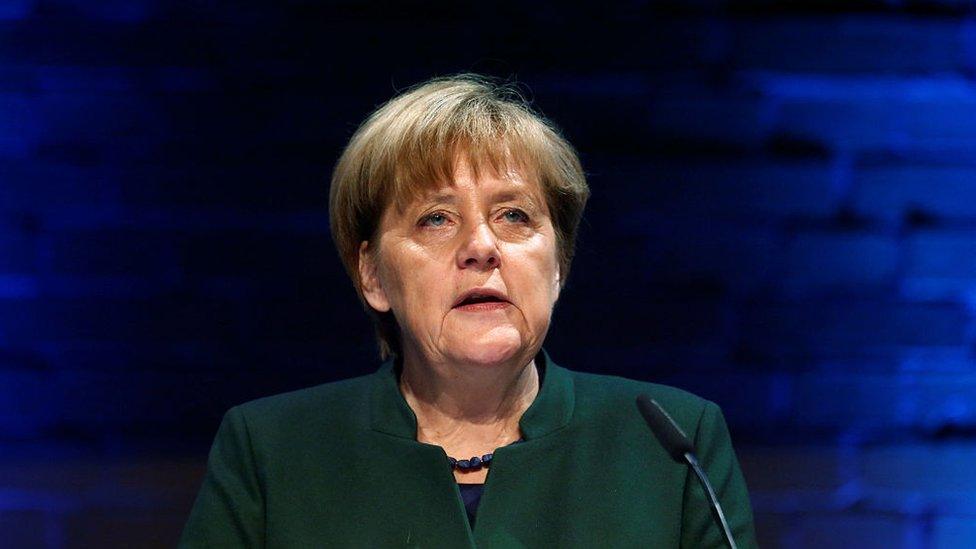
Angela Merkel is expected to win a fourth term in 2017
A passionate European and Christian Democrat, mindful of the horrors of her country's Nazi and Cold War past, Ms Merkel is increasingly viewed as the continent's number one defender of liberal values. Barack Obama pointedly chose to visit her in Berlin on his last official trip abroad before handing over the presidency to Donald Trump.
Ms Le Pen, on the other hand, is the poster child of Europe's new wave of populism. She demands what she described to me in an interview as a "new world order". A new France, a new Europe, free, she says, of the "prison" of the European Union and the "artificial" joining of European nations.
She laughed at those wringing their hands on both sides of the Atlantic over the Trump Presidency.
Brexit, Trump and Europe's new "patriotic leaders" in Ms Le Pen's words, are merely the end of one world and the start of a new one where, in her opinion, the people and the nation state are strong and don't answer to what she called "Globalisationists".
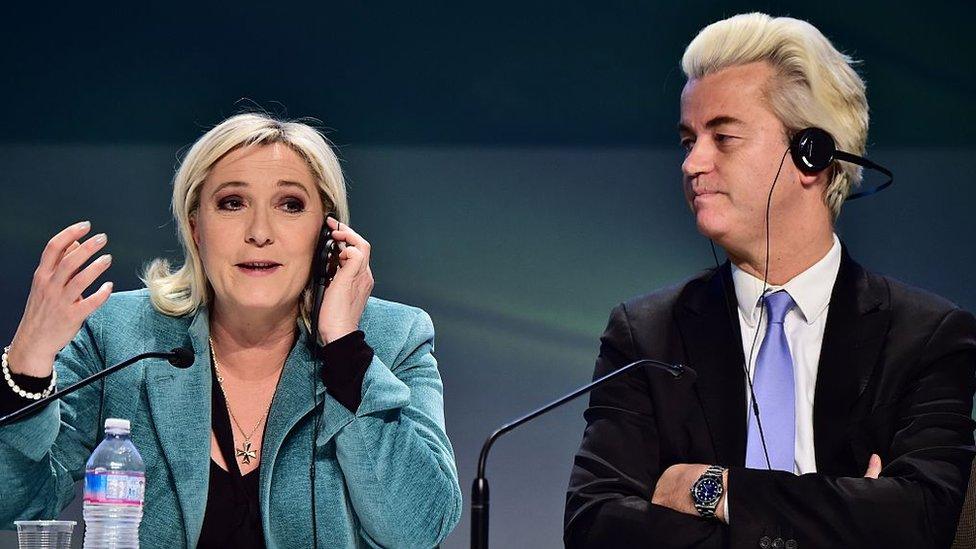
Nationalists Marine Le Pen and Geert Wilders have gained popularity
Gone are the days in the not so distant past when national elections met a wall of public indifference - 2017 has been dubbed 'Election Year' in Europe, with key EU nations Germany, France, the Netherlands and possibly Italy heading to the polls.
Shouting from the sidelines
With populist parties standing strong, those for and against them feel motivated to vote. And not just with their pockets in mind. The famous campaign slogan, "it's the economy, stupid", associated with Bill Clinton's successful 1992 presidential bid, is no longer pertinent.
Look at the Netherlands - holding an election next month. The economy there is on the up and unemployment is down. But rather than flocking around their centrist prime minister, voters are flirting with anti-immigration, Eurosceptic populist, Geert Wilders.
Wherever you look at the moment in Europe - north, south, east and west - there are populist parties shouting loudly from the sidelines.
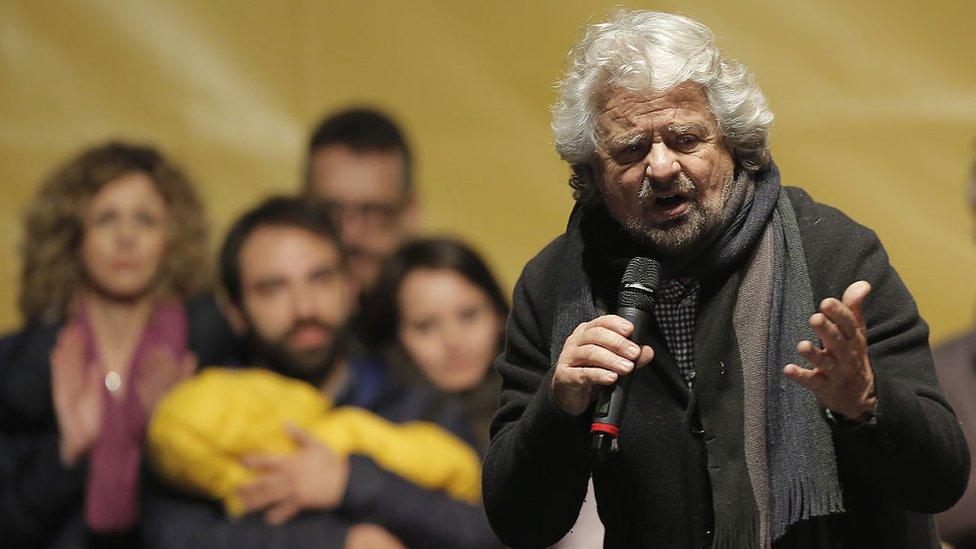
Could Italy's Five Star Movement and leader Beppe Grillo win a general election?
The Five Star Movement is Italy's most talked-about political party right now. They listen to people, they say, not Big Business, and their message is captivating the country's disenchanted, from all ages and backgrounds.
"Populism is a beautiful world," Beppe Grillo, the figurehead of the movement, told me. "I am proud to be a populist. It means we are saying No! No! and No! and we will win the next election."
A house of cards
A nostalgic nationalist, anti-immigration, vein runs through most of Europe's populist parties but their policies vary from country to country. It is incorrect to describe them all as "far right".
Even the parties which have deep roots in the extreme right, such as Austria's Freedom Party or Ms Le Pen's Front National, have tried to broaden their appeal, declaring they are of the people, not right or left.
How does the European Union work?
"Au nom du peuple" (in the name of the people) is the banner under which Ms Le Pen is running her presidential campaign in France.
And after the Francois Fillon fiasco in France, with the centre-right's presidential candidate damaged by corruption allegations, Ms Le Pen has a chance of making it to her country's highest political office.
And that would be a dramatic turning point for Europe - she says she wants out of the euro and probably of the EU. "Frexit" could bring down the whole EU like a house of cards.
A fractured Europe
In Brussels, even insiders admit the EU is in a battle to survive. Before stepping down as president of the European Parliament, Martin Schulz told me there was a "real risk" that the EU would fall apart.
Vice President of the European Commission Federica Mogherini said: "We have something that the entire world regards as a miracle. We have an enormous strength and we spend our time talking about our own crisis."
French presidential election campaign heats up
Next month is the EU's 60th birthday, with lavish celebrations planned in Rome. But outside the birthday party gates the EU's existence is being seriously questioned.
And there is a global significance to all this too. Europe's populists are for the most part big fans of Presidents Putin and Trump, and a weak, fractured Europe works for both men.
With many Europeans nervous about the Trump presidency and with so much at stake, it could be that even angry voters feel safer sticking with the political mainstream this year.
But predict at your peril. Polls have proved unreliable. Europe's voters are in a volatile mood.
You can watch After Brexit: the Battle for Europe on BBC Two on Thursday 9 February, 21:00 GMT.
- Published6 December 2016
- Published7 February 2017
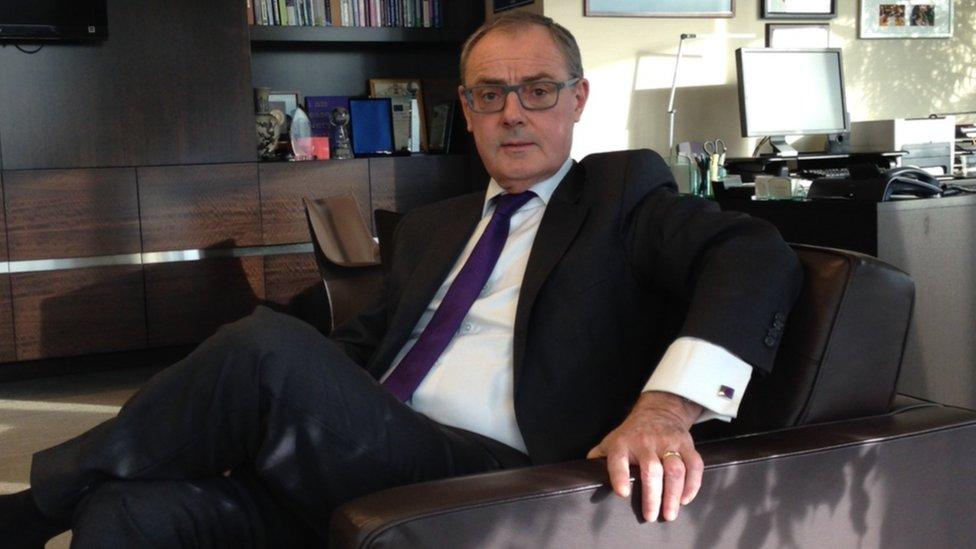
- Published13 November 2016
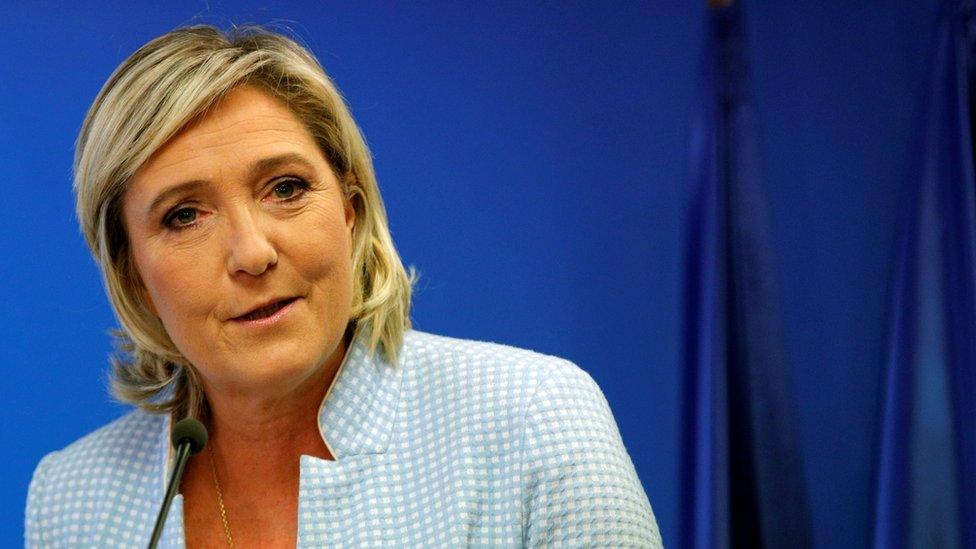
- Published5 December 2016